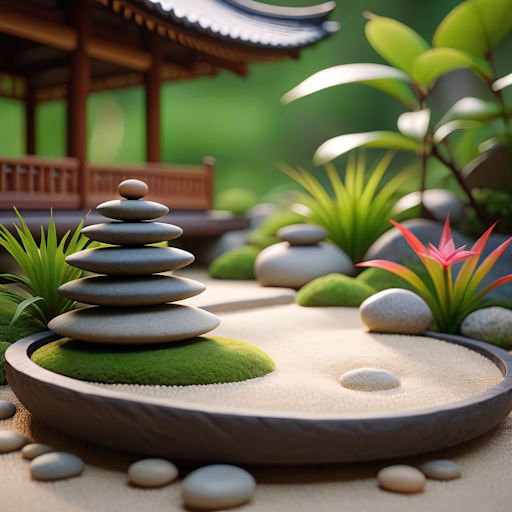In the bustling world we inhabit, finding moments of tranquillity can be a challenge. Amidst the chaos, the Zen garden emerges as an oasis of peace, inviting seekers to a realm of serenity and contemplation. Rooted in Buddhist tradition, these meticulously designed spaces embody the essence of balance and mindfulness.
The Role of Bodhisattvas in Buddhist Tradition
At the heart of Zen philosophy lies the concept of bodhisattvas, revered figures in Buddhism who embody compassion and enlightenment. The term “bodhisattva” translates to “enlightened being,” and these individuals dedicate themselves to the well-being and enlightenment of all sentient beings.
In Buddhist tradition, bodhisattvas are considered beings who have attained a high level of spiritual realization but choose to remain in the cycle of birth and death to help others reach enlightenment. Their altruistic commitment to the welfare of others distinguishes them as compassionate guides on the path to awakening.
The Zen garden, with its carefully arranged elements, serves as a metaphorical landscape mirroring the journey of a bodhisattva. Each rock, pebble, and plant symbolizes an aspect of the path towards enlightenment, guiding practitioners to reflect on their own journey and embody the spirit of compassion.
Stories of Famous Bodhisattvas
To truly understand the depth of the bodhisattva spirit, one must explore the stories of renowned figures who exemplify this selfless commitment. One such figure is Avalokiteshvara, the bodhisattva of compassion.
Avalokiteshvara’s story is a testament to the transformative power of compassion. Legend has it that, moved by the suffering of all beings, Avalokiteshvara vowed not to attain Buddhahood until every sentient being could reach enlightenment. This commitment to compassion is vividly reflected in the Zen garden, where the arrangement of elements is a silent reminder of the interconnectedness of all life.

Another revered bodhisattva is Manjushri, the embodiment of wisdom. Manjushri wields a sword that cuts through ignorance and a book that represents transcendent wisdom. In the Zen garden, the carefully chosen placement of elements reflects the pursuit of wisdom, encouraging practitioners to cultivate a discerning mind on their spiritual journey.
How to Cultivate the Bodhisattva Spirit
In the quest to embody the bodhisattva spirit, individuals can draw inspiration from the Zen garden design, translating its principles into practical steps for daily life.
- Cultivating Compassion: At the core of the bodhisattva spirit is compassion. Much like the carefully arranged stones in a Zen garden, individuals can cultivate compassion by recognizing the interconnectedness of all beings. Acts of kindness, understanding, and empathy become stepping stones on the path to enlightenment.
- Nurturing Wisdom: In the Zen garden, every element has a purpose. Similarly, individuals can nurture wisdom by seeking knowledge and understanding. Reading sacred texts, engaging in meaningful conversations, and reflecting on personal experiences contribute to the development of a discerning mind.
- Mindful Presence: The Zen garden invites individuals to be fully present in the moment. Practicing mindfulness, whether through meditation or daily activities, allows one to appreciate the beauty of existence. The simple act of being present becomes a profound expression of the bodhisattva spirit.
- Harmony in Action: Like the harmonious arrangement of elements in a Zen garden, individuals can bring harmony to their lives by cultivating positive relationships and fostering a sense of unity. Acts of kindness, cooperation, and understanding create a ripple effect that resonates with the essence of the bodhisattva spirit.

In the quietude of the Zen garden, the bodhisattva spirit finds expression, guiding practitioners on a transformative journey towards compassion, wisdom, and harmony.
Conclusion
The Zen garden, with its profound design and tranquil atmosphere, encapsulates the essence of the bodhisattva spirit. As individuals navigate the complexities of life, the principles embodied in these serene spaces serve as a guide towards enlightenment and selfless service to others.
Incorporating the wisdom of bodhisattvas and the symbolic language of Zen garden design into daily life, one can create a personal sanctuary of serenity and contemplation. In doing so, the journey towards embodying the bodhisattva spirit becomes a transformative and enriching experience.
External Links: